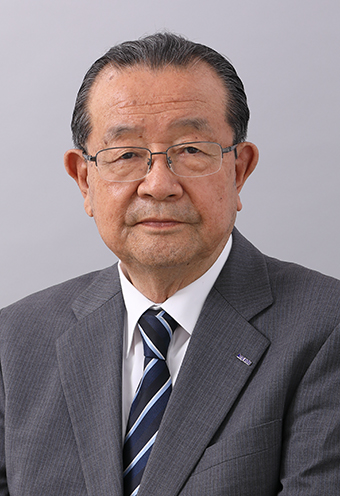President, The Kyoto College of Graduate Studies for Informatics, School of Applied Information Technology
Yoichi Terashita

- Bachelor of Science, Kyoto University, Doctor of Philosophy from the University of Iowa,
- Senior Faculty Member, Kyoto Computer Gakuin School, Professor Emeritus, Kanazawa Institute of Technology, Former JICA (Japan International Cooperation Agency) Expert to Thailand, Former Principal of Kyoto Computer Gakuin, Rakuhoku School, and Kyoto Ekimae School, Kyoto Computer Gakuin
- In charge of Honors Master Thesis
The rise of AI and social change: Become a professional who can face and handle this new technology properly!
To all of you who are applying with high expectations to study Information Technology (IT) and Business at the Kyoto College of Graduate Studies for Informatics (KCGI), many experts argue that 2025 will be the first year of new developments in Artificial Intelligence (AI). Since its appearance in the mid-1940s, the electronic computers, this new technology has been described by various buzzwords such as "computerization," "OA," "informatization," "IT revolution," and "DX reform," and its social significance has been widely discussed. However, when it comes to AI, its impact on human society differs from the past, as it is considered to be the next-level function capable of revolutionizing society.
In his latest book, Nexus, Yuval Noah Harari presents a detailed analysis from anthropological, historical, sociological, and psychological perspectives, arguing that the impact of AI can, if we are not careful, be more of a threat to human society than a benefit. According to Harari, AI technology has already begun to have negative effects on society, while at the same time, its capabilities cannot be stopped. He raises questions about how human society should deal with AI from political and sociological perspectives.
Needless to say, AI can be considered one of the ultimate applications of information technology. However, what makes it significantly different from other applications is the scale and quality of the impact that AI will have on human society, Harari says. The Kyoto College of Graduate Studies for Informatics has a wide range of applied information fields, including artificial intelligence, data science, web system development, network management, global entrepreneurship, ERP (enterprise resource planning), IT manga and anime, and IT tourism. In each of these fields, how to utilize AI is a topic that requires discussion. We at the KCG Group are carefully considering what philosophy, methods, and curricula we should be using to teach various AI-related technologies and theories. As a rapidly growing university, KCGI invites faculty from all over the world, to provide IT education through a curriculum that incorporates cutting-edge knowledge from their respective fields. We consider it our important mission to send out graduates who can appropriately deal with the future of AI.
AI is one of the developments resulting from traditional IT education. In the business field, AI handles huge amounts of data, processes and analyzes it, and suggests optimal solutions at a speed far beyond conventional human operations. In the field of medicine, AI now enables high-accuracy precise diagnoses through image analysis. In other words, AI is excellent at tasks that correspond to the left-brain functions of humans.
On the other hand, AI (or information technology in general) is completely powerless when it comes to functions that correspond to the human right-brain (consciousness), such as emotions, ethics, and love. For example, AI cannot grasp and process the emotions felt when listening to music, or judge whether something is morally right or wrong. This is an important and serious issue when considering the future development of AI technology. If this issue is not resolved, we humans will not be able to use AI with peace of mind. It is quite possible that human society could be destroyed by AI losing its control. To avoid this nightmare, it is essential to give AI a self-correction function, to judge whether the conclusions AI reaches are ethically correct or not, and to correct if they are not. However, this has not yet been realized.
Future IT engineers must not be people who are entirely devoted to technology. They must continue to work as innovative engineers, while constantly thinking about how the development of information technology will affect human society, and always reflect on whether the new technology (AI) they are developing can contribute to the welfare of society. Conversely, some people may think that application of AI technology on society is the responsibility of its users (policymakers, corporate executives, etc.), not engineers. However, this is incorrect. This is because engineers are the ones who are most familiar with the content of the technology, not politicians or executives. The role of engineers in AI development will only become more important from now on.
It was 80 years ago when the atomic bomb was invented, actually used, and caused an unprecedented tragedy. The process of developing the atomic bomb (the so-called Manhattan Project) is depicted in the film Oppenheimer, which highlights the severe conflict between engineers and policymakers. It is sad to say that even now, 80 years later, nuclear technology is still not properly managed, and it can even be said that it is moving in a negative direction. This is difficult to understand. Is it the fault of the engineers? The policymakers? Or is it the failure of human society as a whole? I hope that students studying at our university will always think about these issues as they strive to master information technology and enter society as highly skilled IT professionals with critical thinking skills.